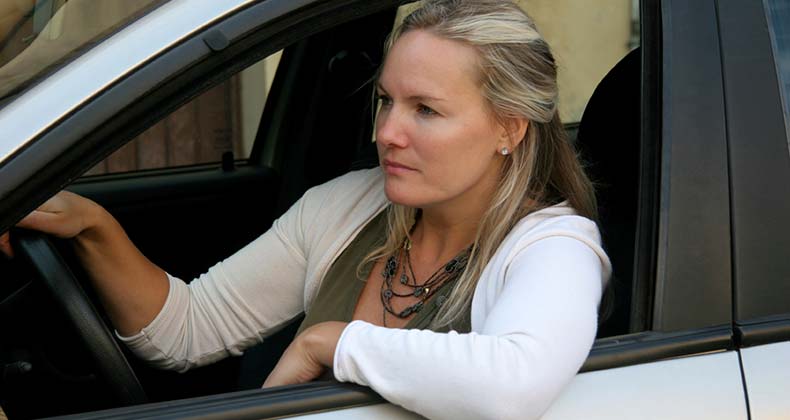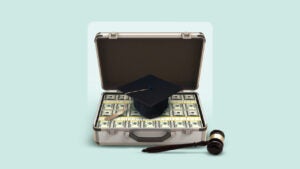Statute of limitations on car repossession

Key takeaways
- Each state has a different statute of limitations on car repossession debt, including auto loans, with most ranging from three to six years.
- After the statute of limitations has passed on your debt, debtors and collectors can still contact you. However, they can no longer bring (or threaten to bring) legal action in an effort to collect the debt.
- Even if the statute of limitations has passed, you still technically owe any outstanding loans. Non-payment can harm your credit.
The statute of limitations on car repossession varies from state to state and ranges from three to six years. After the statute of limitations has passed, debt collectors can no longer bring legal action against you.
But that doesn’t mean you’re off the hook. You are still responsible for repaying the loan, and your creditors may still pursue repayment or repossession of your vehicle.
What is the statute of limitations on car loans?
All debts, including car loans, fall under a statute of limitations. The statute of limitations on car repossession starts at the last payment date. After the statute of limitations on a debt passes, the debt becomes time-barred, and the collection agency can no longer sue you for payment.
Each state has different statutes of limitations. According to the Consumer Financial Protection Bureau (CFPB), these typically range from three to six years, but some states have statutes of limitations that last longer. You can find your state’s specific statute of limitations on auto loan debt and repossession through its court office.
When dealing with debt collection, be aware that you can reset the clock on the statute of limitations if you make a payment or enter a settlement for the debt. In some cases, even acknowledging that the debt is yours can result in the statute of limitations restarting.
It depends on the lender and state you live in, but you will generally be considered in default — and at risk of repossession — if you are 30 to 90 days late on your car payment.
What happens after the statute of limitations passes?
After the statute of limitations has passed, collection agencies may still contact you but cannot sue you for nonpayment. You can send a certified letter demanding that collection calls stop, but you will still technically owe the debt, and that can affect your credit score. Even after the window for legal repossession passes, debt remains on your credit report.
There are multiple regulations regarding debt collection, including rules surrounding debt collection. For example, a debt collector is not allowed to bring or threaten to bring a legal action against a consumer to collect a time-barred debt. If you are being harassed by a debt collector — whether the statute of limitations has passed or not — seek legal counsel with an attorney.
In addition to continuing to pursue collection of the unpaid debt, your vehicle can still be repossessed after the statute of limitations has elapsed. That’s because the statute of limitations relates to a debt collector’s ability to sue you. It does not impact the creditor’s right to repossess the vehicle for unpaid debt.
If your car is repossessed, all is not lost. You may be able to get it back if you repay the outstanding payments. In addition, if you had any personal items in your car at the time it was repossessed, you are entitled to recover those as well.
Other reasons a lender might not be able to collect
While a lender has the right to collect a deficiency payment on a car loan that is within the statute of limitations, there are a few cases when it is not permitted.
You may not need to pay if:
- There are defects in the loan papers that don’t allow for a deficiency payment to be collected.
- The creditor didn’t provide the legally required written notices to try to collect your debt.
- The creditor didn’t sell your car in an honest and fair way.
- The creditor didn’t sell the car at all.
- You filed for bankruptcy.
If you think you might not need to pay the deficiency balance, consult a lawyer for legal advice.
In addition, many car manufacturers and dealers offered payment relief as borrowers struggled to manage their auto loans during the coronavirus pandemic, including the ability to defer payments. While these programs have largely ended, it may be worth contacting your lender to ask if any relief is available.
Be sure to watch out for scams that offer relief on auto loans in order to steal your information.
Bottom line
If you haven’t defaulted yet, consider refinancing your auto loan to help make monthly payments more affordable. But if you have missed multiple payments or defaulted, know that every car loan has a statute of limitations on how long you are responsible for the debt and when repossession can take place.
When considering your debt payment, make sure you know all the facts. Find advice on your car loan and legal resources through the Consumer Financial Protection Bureau, and always consult legal help if needed.
Why we ask for feedback Your feedback helps us improve our content and services. It takes less than a minute to complete.
Your responses are anonymous and will only be used for improving our website.







